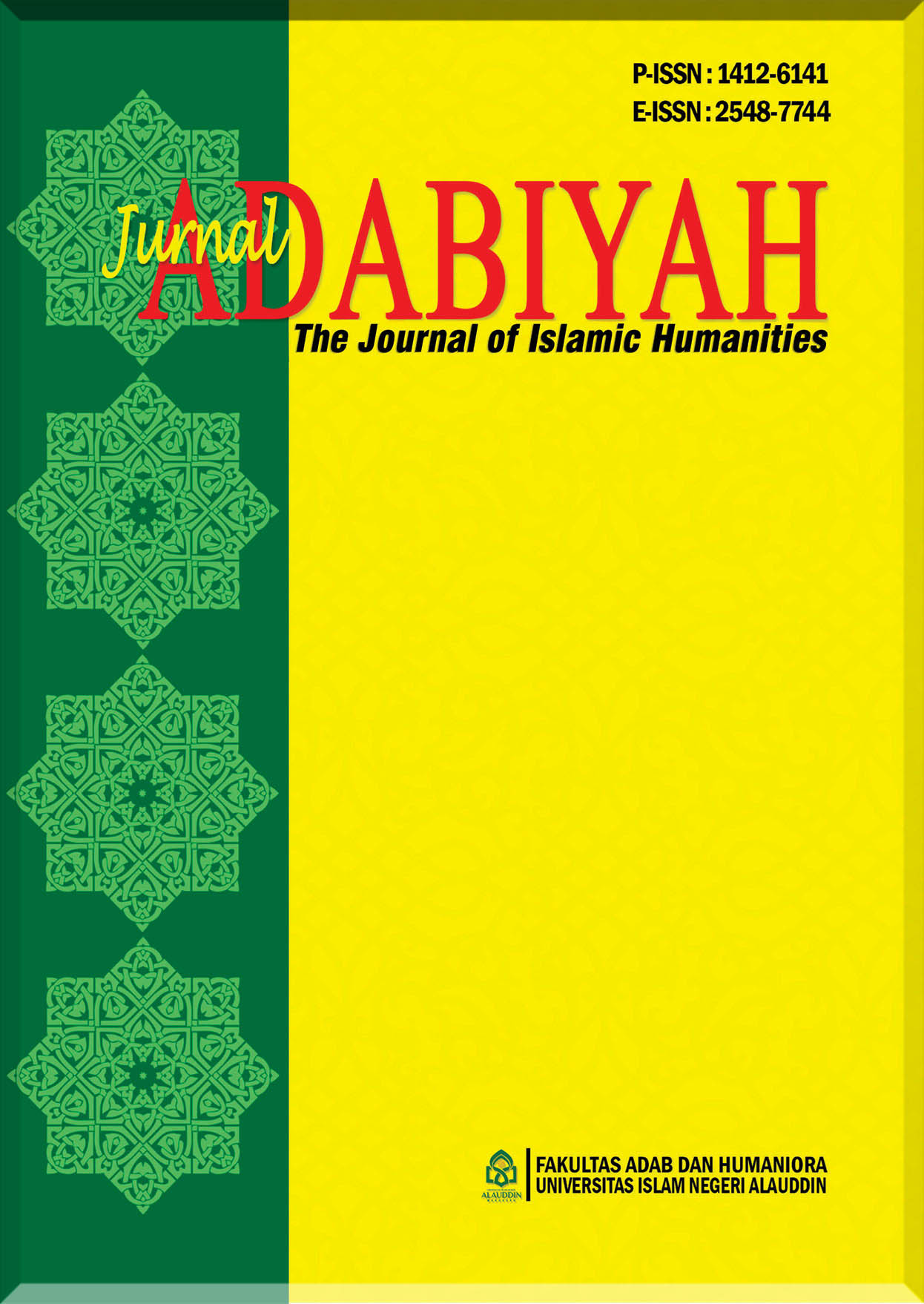Dirāsah Lugawiyyah 'an al- Majāz wa 'Alāqatuhu fī Fahmi Ta'ālīm al-Dīniyyah
Main Article Content
Abstract
إن هذا البحث يتحدث عن كيان المجاز كدراسة من دراسات لغوية وعلاقته في فهم التعاليم الدينية. والمسألة الرئيسة وهي كيف يكون المجاز كحجة لمن قال إن الأيات في القرآن لانجوز أن نفهمها إلا بمعني الحقيقة لا بمعني المجاز؟ فالبحث يقوم بطريقة المكتبة، يعنى القيام بقراءة الكتب اللغوية والكتب التى يبحث فيها المجاز والمقالات الالكترونية والقواميس والمعاجم اللغوية. ثم المطالعة على المواد الكثيرة. فالنتيجة في هذا البحث هي المجاز في جوهره أن يأتي المتكلم لكلمة وضعت لمعنى معين، فيلتقطها ويعبر بها عن معنى آخر، لعلاقة بينهما يدركها الذهن فيلتذّ بها بيانياً. فمجاز القرآن عند المعتزلة فإنهم استعملوا العقل فى فهم التعاليم الإسلامية حرية كما إنهم يعتمدون فى طريقتهم التفسيرية على المجاز.وعند الصوفية قد تفرقت انواع التفاسير لهذا المذهب إلى التفسير النظرى والتفسير الإشارى والتفسير الظاهر وإنها من التفاسير التأويلية أو المجازية.وعند الفلاسفة فى توفيقهم بين الدين والفلسفة يسيرون على طريقة التأويل للنصوص الدينية والحقائق الشرعية بما يتفق مع الأراء الفلسفية والنظريات الفلسفية. وعند الأشعرية فالمجاز هو طريقة من طرق تفسير الآيات القرآنية ولكنها تحدد استعماله. فقيم المجاز هى معرفة صور النسبة ومعرفة القرائن التى تدل عليها الآيات القرآنية وهي ان تكون مناسبة لقاعدة اللغة وقد اشتهرت عند اللغة العربية القديمة. وإن تكون مناسبة لحال الزمإن والمكان. وإنها لا تختلف بسنة الله والتعاليم الدينية.
Downloads
Article Details
COPYRIGHT AND LICENSE STATEMENT
COPYRIGHT
Jurnal Adabiyah is published under the terms of the Creative Commons Attribution license. Authors hold the copyright and retain publishing rights without restriction to their work. Users may read, download, copy, distribute, and print the work in any medium, provided the original work is properly cited.
LICENSE TO PUBLISH
1. License
The use of the article will be governed by the Creative Commons Attribution license as currently displayed on http://creativecommons.org/licenses/by/4.0.
2. Author’s Warranties
The author warrants that the article is original, written by stated author/s, has not been published before, contains no unlawful statements, does not infringe the rights of others, is subject to copyright that is vested exclusively in the author and free of any third party rights, and that any necessary written permissions to quote from other sources have been obtained by the author(s).
3. User Rights
Under the Creative Commons Attribution license, the users are free to download, reuse, reprint, modify, distribute and/or copy the content for any purpose, even commercially, as long as the original authors and source are cited. No permission is required from the authors or the publishers.
4. Co-Authorship
If the article was prepared jointly with other authors, the corresponding author warrants that he/she has been authorized by all co-authors, and agrees to inform his/her co-authors of the terms of this statement.
5. Miscellaneous
Jurnal Adabiyah may conform the article to a style of punctuation, spelling, capitalization, and usage that it deems appropriate. The author acknowledges that the article may be published so that it will be publicly accessible and such access will be free of charge for the readers.
References
على الجارم، ومصطفى أمين، المرجع السابق، ص 71.
محمد حسين الذهبي، التفسير والمفسرون، المجلد الأول؛ دار الكتب الحديث لصاحبها توفيق عفيفي عامر، سنة 1961 م.
سيد قطب, فى ظلال القرآن, المجلد الأول, جده دار العلم للطابعة والنشر, سنة 1406 هـ - 1986 م.
ابن محمد على بن أحمد بن سعيد بن حزم، المحلي، دار الفكر، الجزء الأول.
الدكتور عبد القادر حسين، أثر النحاة فى البحث البلاغي (مصر: دار نهضة للطبع والنشر، 1970 م.
الدكتور عبد القادر حسين، القرآن، والصور البيانية، دار نهضة مصر للطبع والنشر الفجالة، القاهرة، بدون السنة.
السيد رشيد رضا، تفسير القرآن الكريم الشهير بالتفسير المنار(بيروت-لبنان: دار المعرفة، بدون السنة.
الشيخ عبد الوهاب خلاف، علم أصول الفقه (مصر: دار العلم، الطبعة 12، 1398 هـ/1978 م.
Taufiq Adnan Amal; Islam dan Tantangan Modernitas (Studi atas Pemikiran Hukum Fazlu al-Rahman), Bandung: Mizan, 1993 M.

